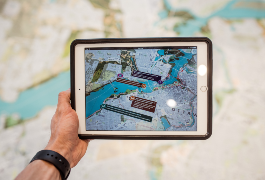Bachelor of Arts in Public Affairs (Bachelors)
UCLA
Los Angeles, CA
The B.A. in Public Affairs offers an in-depth and engaged educational experience with a clear public service ethos. Drawing from UCLA Luskin’s expansive resources in Public Policy, Social Welfare, and Urban Planning, the major combines critical thinking, social science methodology, and experiential learning, connecting the dots between theory and action.
Capstone Major
The Public Affairs major is a designated capstone major. Students pursuing the major are required to complete a three-quarter experiential learning opportunity. The experiential learning capstone consists of three parts: an internship, seminar, and capstone project.
Internships can range from internships in community-based organizations, social enterprise businesses, or regional governments to UCLA Global Internship Program, UCLA Quarter in Washington, or UC Center Sacramento (UCCS) programs.
These experiences are accompanied by a seminar that enables students to reflect on and share their engagement experience with classmates, apply what they have learned in their coursework to their community or public engagement, and analyze how the engagement experience conforms with or differs from what they learned in coursework.
This experiential learning opportunity culminates with a capstone project that integrates what students have learned at their internship site with theory and methods learned in their major coursework.
Mga Resulta ng Pagkatuto
1. Understanding of how different contexts, institutions, and/or environments influence individual and public life and can create, exacerbate, or reduce inequality and injustice
2. Demonstrated familiarity with economic, political, and/or civil society responses to social problems and public issues
3. Location of, use of, and critical thinking about quantitative and qualitative evidence for understanding societal problems and/or their solutions
4. Formulation of clear and convincing written and oral arguments for varied audiences
5. Effective communication with collaborators, policymakers, and/or the public
6. Application of theoretical knowledge, analytical methods, and communication skills to an experiential learning capstone










